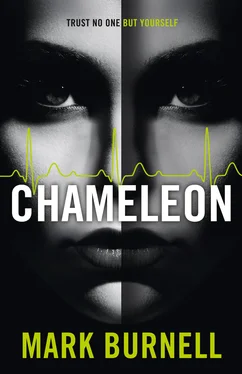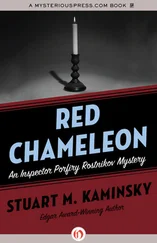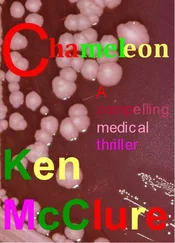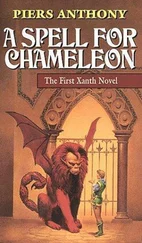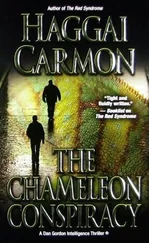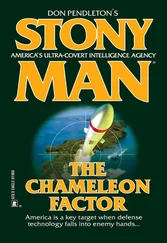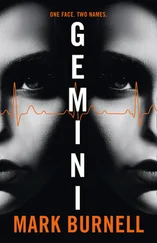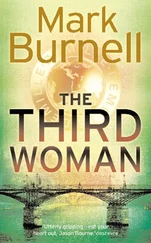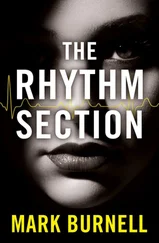I walk up to the face and place my palms against it. Hard, wet and freezing cold. Before I start, I make a map in my head of the route I’ll take. Crevices for toes, slender finger-holds, chunks small enough to grab but large enough to take the whole weight of my body. It’s join-the-dots. When I’ve seen exactly how I’ll make it to the lip of the ledge, I start.
I’m ten feet off the ground when I fall. I’m reaching to my right, spread-eagled across the rock, leaning back at an angle of almost forty-five degrees. I grab a sharp but thick ledge and I’m beginning to transfer my weight when, without warning, the rock shears, coming away in my hand. There’s no time to react. I’m already falling. I land on thick grass with a squelch.
As I struggle for breath, Boyd says, ‘You okay?’
I try to say something but can’t form a word. He leaves me to recover for a moment.
‘I thought that might happen.’
To prove the point, he steps through the gossamer waterfall, grabs a secure-looking wedge of rock and yanks it. It snaps free of the face, leaving a light scar beneath.
‘Bastard,’ I gasp.
‘It could happen again.’
I sit up. I’m soaked to the skin. ‘What do you mean?’
‘The plasterwork on the cornice. It’s old and rotten. It’s liable to come away in your hand.’
‘You must be pretty pleased with yourself.’
‘Very. Now let’s try it from the top.’
Stephanie pulled the curtains. It was a breezy morning, the wind sending washboard ripples across the loch. There was frost on the grass. She dressed quickly. The T-shirt she’d left to dry overnight was stiff and smelt of peat. She pulled a sweatshirt over the top. She collected her boots from the small drying room by the back door. They were warm.
Boyd was in the kitchen, drinking coffee, leaning against the sink. He wore an old pair of combat trousers and a chunky black V-neck over a white T-shirt.
‘Aren’t we going for a run?’
‘Valeria’s gone. She didn’t want to wake you. She asked me to say goodbye to you.’
‘When did she go?’
‘Early this morning. I drove her into Lairg.’
‘What’s wrong?’
‘Nothing.’
‘Nothing?’
‘Your preparation is over. At least, this part of it is.’
Stephanie wanted to say something, to protest. But she couldn’t.
Boyd seemed to sense it. ‘I got a call last night, after you’d gone to bed. Tomorrow morning, you’re going home.’
‘It’s not home.’
Boyd poured coffee from the pot into an enamel mug and offered it to her. ‘You can go for a run if you like, but I thought we might give it a miss this morning. You’re in good enough shape.’
‘But not so much fun to look at?’
He smiled. ‘No, I’m afraid not. I miss the bouncy bits you arrived with.’
‘You’ll get over it.’
‘Don’t be too sure.’ He refilled his own mug. ‘I need to go to Durness. Do you want to come?’
She could taste the sea before she saw it. They drove slowly on roads where sheep were the major source of traffic. They entered Durness at midday, sweeping past the primary school before halting outside the Mace store, a small supermarket with a post office counter, where green fees could be paid for Durness Golf Club, mainland Britain’s most northerly and windswept course. There was a BP filling station opposite the store, a small wooden hut beside the old pumps.
They bought groceries at Mace. There were half a dozen people inside the store. Boyd appeared to know them all. He fell into conversation with a couple at the till. A wiry man with copper hair shot a glance at Stephanie and then cracked a sly joke she couldn’t hear. Laughter all round. A fat woman in a grubby black fleece asked Boyd how his season had been.
He caught Stephanie’s eye. ‘More challenging than usual, Mary. But more rewarding, too.’
There was more conversation, more laughter, Boyd at the centre of it, relaxed, social. To Stephanie, who was silent and watching, it was a minor revelation. Outside, he suggested a walk. They headed out towards Balnakeil, a mile away, past the Balnakeil Crafts Centre, where small shops were located in corroding concrete huts erected in the Forties to house German prisoners-of-war. Boyd parked the Land-Rover by the old house at Balnakeil, on the opposite side of the road to the walled churchyard. Stephanie said she wanted to look inside. He shrugged and said he’d wait for her by the gate onto the beach.
The tiny stone church had no roof. Its walls were coated in ivy. The graveyard was crowded. Most of the headstones were old, their engraving partly erased by decades of ferocious weather. Many commemorated men and women who were not buried in the cemetery: those who’d been lost at sea, or in colonial wars fighting for the expansion of the British Empire, or those who’d emigrated to Australia, India and South Africa, in search of a life less gruelling. Scattered among the old graves, there were a few more recent.
Including Rachel’s.
It was in the far corner, by the stone wall. A small, unremarkable square headstone laid down the basic facts of her life. Dead at thirty-five. It made no mention of the cause but Stephanie knew that it had been breast-cancer. Beloved wife of Iain. The bottom half of the headstone was blank, leaving enough space for another entry.
She looked across the cemetery. He was facing the sea.
She joined him at the gate and they walked onto the beach in the direction of Faraid Head, the farthest tip of the headland. The tide was coming in, but still low. The sand was hard, wind blowing a thin film of it across the rippled surface. They stepped over squelching beds of seaweed and scattered rubbish: a single shoe, part of a seat-belt, strips of slime-coated plastic. At the far end of the beach, a concrete track rose between dunes. In some places sand obscured it, but the direction was clear and they followed it. Between the dunes the wind died, in the open it was fierce.
As they crossed a cattle-grid, Stephanie said, ‘There was a man in London before Malta. Frank White. I was in love with him. He was in love with me, I think. But it was a strange kind of love. I couldn’t tell him anything truly personal. It was a love built on lies, except at the end. Then, I told him everything, and he accepted it. He’d known there was something about me right from the start.’ She shook her head at the memory. ‘After Malta, I disappeared. But I sent messages to him. I gave him the opportunity to follow me, to meet me. To vanish with me.’
‘But he didn’t?’
‘No.’
‘Any idea why not?’
‘I guess he didn’t love me as much as I thought he did. Or as much as I loved him.’
‘Maybe he had too much to lose by following you.’
‘Believe me, he didn’t.’
‘Have you tried to contact him again since you’ve been back in London?’
‘No. It’s been four years. He belongs to another part of my life. A part that … well, the idea of it’s just too complicated.’
‘I know what you mean.’
Stephanie doubted that. She took a deep breath. ‘Anyway, when I realized there wasn’t going to be a future with him, I didn’t feel there was any future at all. I didn’t disappear to escape from Magenta House. Not really. I disappeared to be with him.’ Boyd had stopped walking so she stopped too. She smiled sadly. ‘My first broken heart. I was twenty-three but I took it like a fifteen-year-old.’
‘And became Petra because of it?’
‘I didn’t become anybody. I was already Petra.’
‘I’m not with you.’
‘I didn’t choose to live Petra’s life because my heart got broken. But I was confused and angry. If there’s one thing I hate, it’s self-pity, but when I look at the way I was then I don’t see that I had much of a chance. Trained to perfection – to breaking point – I was bound to fracture sooner or later.’
Читать дальше
